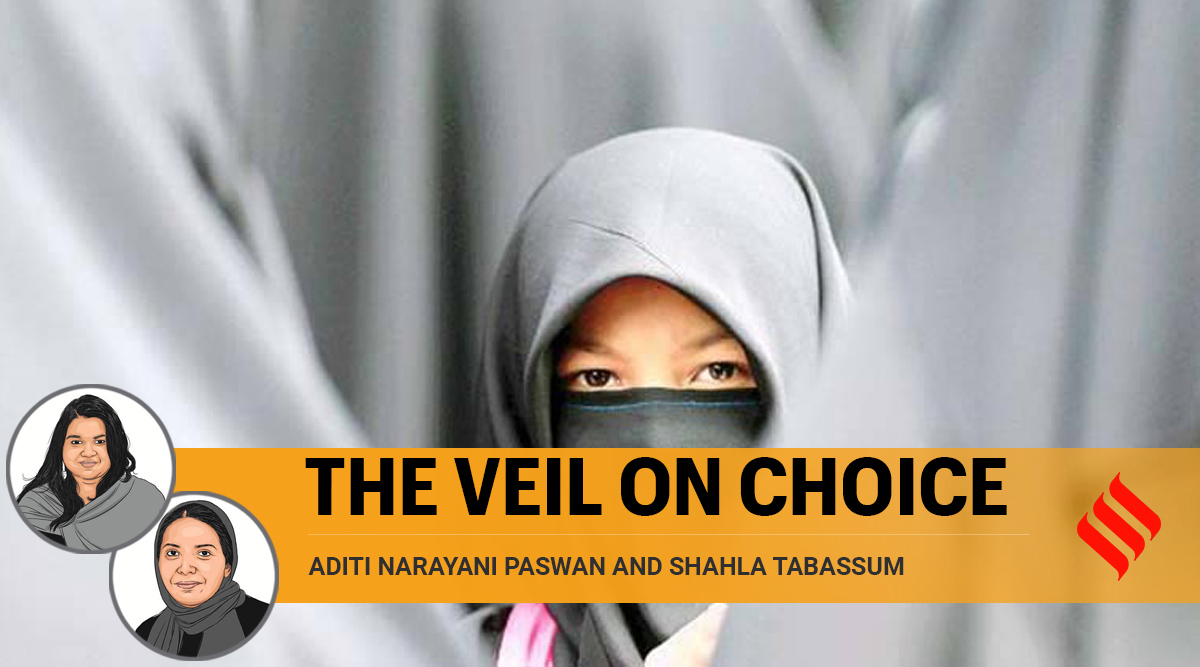Women seem to be perpetually caught between liberation and oppression, mired in vulnerabilities yet demonstrably resilient. Whatever our individual location in the fight against patriarchy, women’s lives and bodies are often marked as repositories of tradition and are used to serve roles that are both symbolic — representing nations, communities, and families — and functional, that is transmitting these cultural and religious mores to future generations. Women’s behaviour and appearance are regulated to serve ends that aren’t necessarily in their interest or that of society. It is, therefore, little wonder that women often find themselves in ambiguous relationships with these cultural roles — at times even playing defenders of cultural values, we had very little say in instituting.
As images from Iran pour in, we saw a free-spirited young woman dancing on the street as an act of defiance, chopping her hair and burning her hijab — a tool of oppression in her cultural milieu. These acts mark her liberation not only from the veil but help her stake a claim on society. In another part of the world, young girls are fighting to wear the hijab — to them, this soft, diaphanous piece of fabric is a tool of expression and identity. Both these resistances highlight the question of choice. There are several amongst us, feminists and allies, who draw on the notion of choice, and a woman’s right to it to extend support to both causes.
 Don't Miss from Express Opinion | Iran to Udupi, a running thread: Let women choose
Don't Miss from Express Opinion | Iran to Udupi, a running thread: Let women choose
But in a world whose structures and systems — social, political or religious — are steeped in patriarchy, we have to concede that often the ambit of choices is narrow. Both lived experience and academic research demonstrate that women internalise these structures that bind us to our own oppression. Would it then be far-fetched to claim that we have inherited several tenets of patriarchy in everyday life under the garb of choice? Is the choice that we believe is ours, really ours?
In his seminal essay, ‘Two Concepts of Liberty’, philosopher Isaiah Berlin talks of two types of freedom. “Negative Liberty”, which revolves around the existence of a private sphere where an individual can do as s/he pleases. This realm is free from external interference of any kind — individuals, communities or the state. The second he called, “Positive Liberty”, which means taking control of one’s life and realising its fundamental purposes. For liberty to mean self-actualisation of the highest order, conditions need to be made available to individuals to pursue their highest good. The state has to step in to create such a state of affairs. Its intervention is required for free will to flourish meaningfully — even though liberals might baulk at that possibility.
As women’s bodies continue to be policed to serve as a narrative for contentious politics, we find ourselves at an intersection of dichotomous meanings of positive and negative liberty. Each day is part of an ongoing struggle to negotiate the meaning of empowerment and liberty. Sentiments are attached to veils — the hijab and the ghunghat have been described as a space for women to breathe, to smile, to exist. The question that begs an answer is: Isn’t it time for the whole world to be a woman’s space to breathe in and to conquer?
Also in Express Opinion | Taking off their hijab: Iranian women’s protest against the headscarves dates back several decades
Women across religions are both victims and custodians of patriarchy. In a country like ours, a woman’s consent is often not her own — it is a product of societal conditioning and androcentric norms. Can we then declare that our choices and consent are our own? Is the choice of wearing the hijab really our own free will?
Most Read 1Chandrayaan-3 mission: Dawn breaks on Moon, all eyes on lander, rover to wake up 2As Indo-Canadian relations sour, anxiety grips Indian students, residents who wish to settle in Canada 3Karan Johar says Sanjay Leela Bhansali did not call him after Rocky Aur Rani: ‘He’s never called me but…’ 4Shubh’s tour in India cancelled: Why is the Canada-based singer facing the music? 5Gadar 2 box office collection day 40: Hit by Shah Rukh Khan’s Jawan onslaught, Sunny Deol movie ends BO run with Rs 45 lakh earning
According to feminist sociologist Simone De Beauvoir, differential treatment and socialisation of young children starts as soon as they reach an age where they can comprehend things. Women are raised to become tradition-bound — they who carry the culture and honour of their families and clans.
Turning religious parochialism into a political issue serves neither religious agenda nor women. As we enter Amrit Kaal, we are once again reminded that the daughters of the nation want to study — with or without the hijab. The first guidance revealed by the Prophet in the Quran was “iqra” — “to read”. According to the Quran, both men and women have the same rights to education. The matter is now in the able hands of the Supreme Court to resolve issues in an unpolitical, rational manner and let peace prevail.
Also ReadWill reservation really help Indian women?Pratap Bhanu Mehta writes on new Parliament: India’s age of ambitionValues Kota imparted: Anxiety and building a future on a butchered presentWith G20-IMEC plan, the global order shifts to Eurasia
Paswan is assistant professor, Maitreyi College and founder of DAPSA (Dalit Adivasi Professors and Scholars Association. Tabassum is assistant professor, department of political science, Zakir Hussain College, Delhi University
© The Indian Express (P) Ltd


